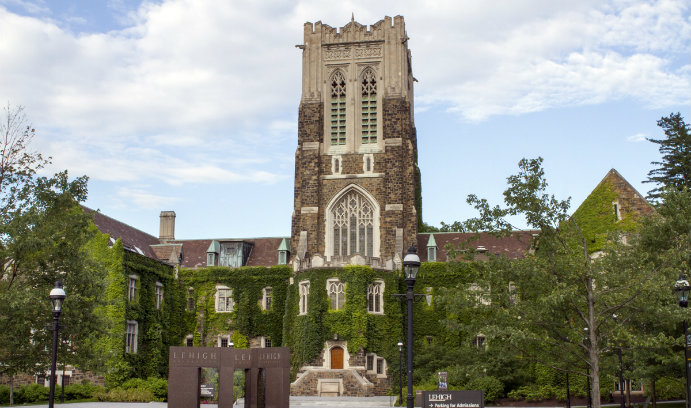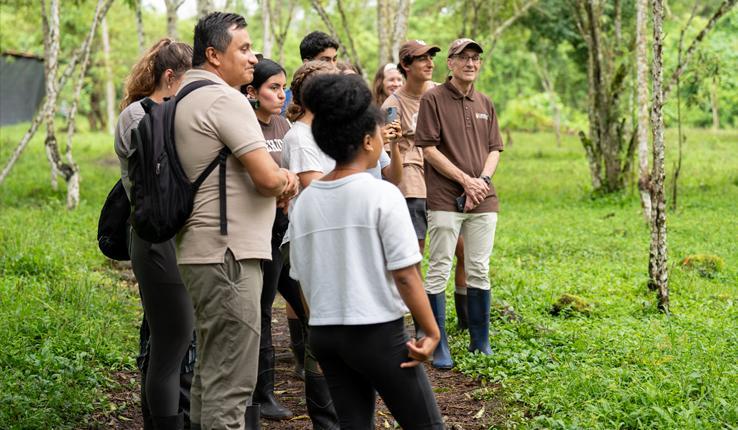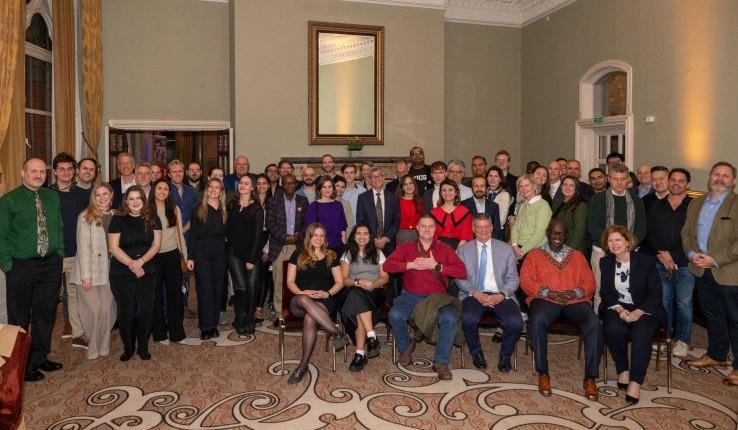Office of International Affairs Hosts Forum on Short-Term Student Experiences in Global Health

Lehigh University hosted more than 70 participants representing nine NGOs and 28 colleges and universities in 15 states plus the District of Columbia at the Association of International Education Administrators (AIEA) Thematic Forum, “Improving the Quality and Value of Short-term Student Experiences in Global Health."
More than 70 participants from nearly 40 institutions and organizations attended the Association of International Education Administrators (AIEA) Thematic Forum, “Improving the Quality and Value of Short-term Student Experiences in Global Health,” at Lehigh on Dec. 5 and 6. Participants included senior international officers, study abroad advisors, NGO administrators, dental and nursing school faculty, and global health program faculty and staff.
AIEA, a membership organization that brings together individuals and organizations responsible for shaping the leadership and management of international higher education, sponsors forums that provide important opportunities to examine how university leadership can advance good practice in the field of international education. Judith Lasker, NEH Distinguished Professor of Sociology, and Cheryl Matherly, vice president and vice provost for international affairs, worked together to apply for the grant from AIEA to host the conference.
A welcome reception, dinner and program in the Asa Packer Dining Room kicked off the event. Matherly welcomed the attendees, and Lasker and Jessica Evert, executive director of Child Family Health International, provided an overview of the issues. Lasker, author of Hoping to Help: the Promises and Pitfalls of Global Health Volunteering, discussed “The current state of short-term global health activities: overview of research done and information needed, development of guidelines for best practices.” Evert, who is also chair of the Global Health Competency Sub-Committee of the Consortium of Universities for Global Health and a clinical instructor at the UCSF Schools of Medicine, spoke about “Working with students-successes, challenges, and horror stories in service learning The CFHI model.”
The following day, forum participants heard from a variety of speakers on topics including the risks of international service for students, institutions and host communities; current efforts to reduce risk; and what students and faculty are learning about their role in the world from international service experiences. Presenters included Sarah Stanlick, director of Lehigh’s Center for Community Engagement and professor of practice in sociology and anthropology, Kim Nimmo, Lehigh’s director of risk management, and speakers from the University of Minnesota, Northwestern University and Haverford College.
Afternoon breakout sessions featured topics for the AIEA report of recommendations for practitioners and focused on key questions.
“This forum highlighted the importance for universities to be vigilant with encouraging responsible practices with short-term global health programs,” said Matherly. “According to the Institute for International Education, 63 percent of students who participate in study abroad do so on programs that are less than six weeks, and over 23,000 students participate annually in service programs. This is a fast-growing area in education abroad, and universities should take the lead to support programs that encourage responsible and not exploitative engagement with host communities.”
Lasker said, “We thought [the forum] was a good opportunity to bring to a national audience a greater awareness of the challenges and resources associated with international health experiences for students. The massive marketing by companies that are recruiting students to go with programs that are often not conducted well is of great concern on many campuses.”
Participants represented nine NGOs and 28 colleges and universities in 15 states plus the District of Columbia. One participant traveled from Israel to attend.
“Participants represented a wide diversity of people who are engaged with international volunteerism—global health educators, senior international officers, study abroad advisors, community service directors and leaders of NGOs,” said Matherly. “Importantly, this brought together individuals who share a concern about good practice and are in roles in which they can influence their organizations.”
“There was a great deal of networking at the conference and new connections among attendees which we hope will be fruitful,” said Lasker.
Lasker and Matherly plan to prepare for AIEA an issues brief based on the conference that can serve as a guide for university officials as they seek to ensure that their programs are beneficial both to students and host countries.
Posted on:




